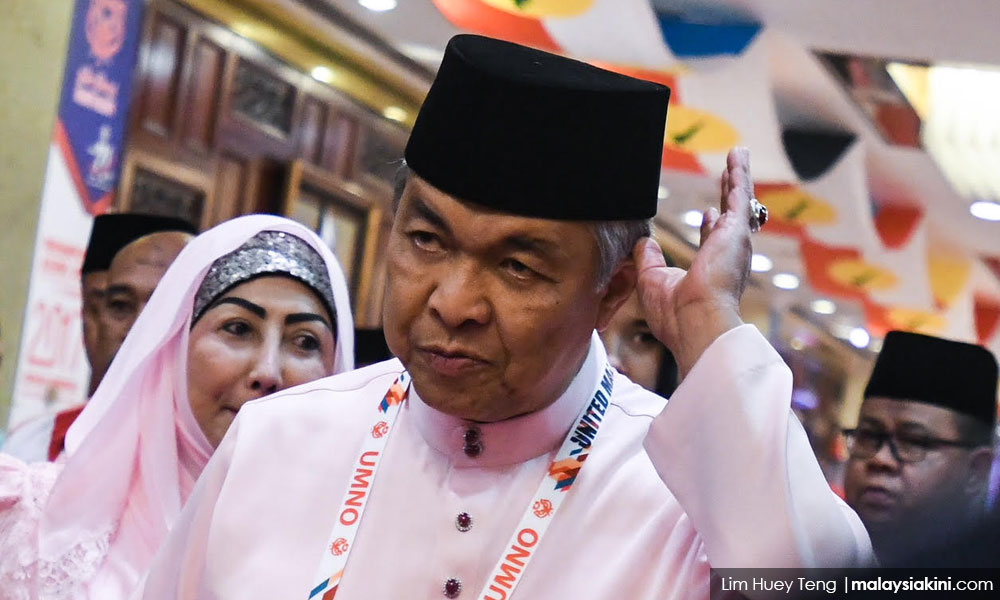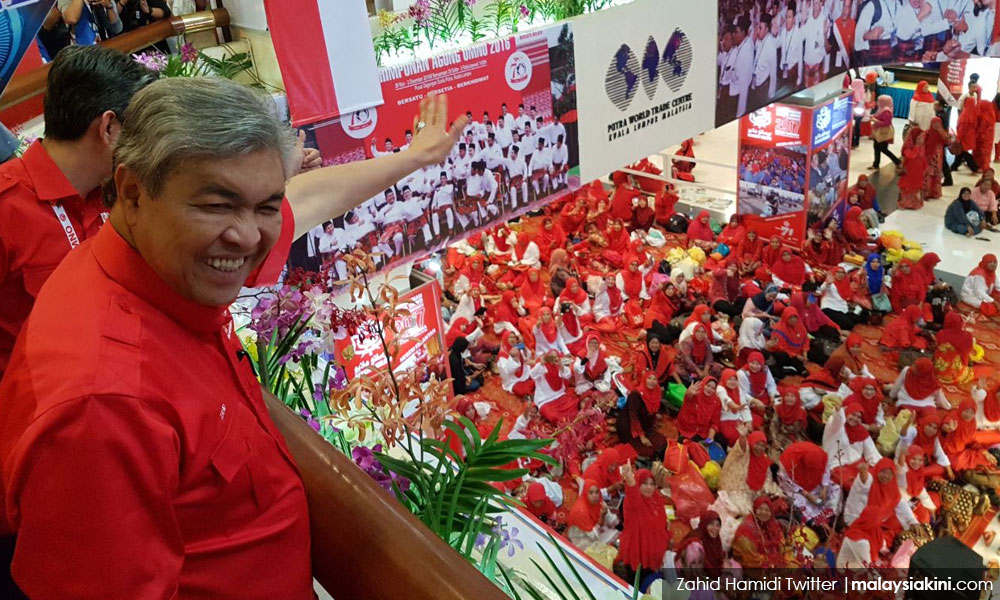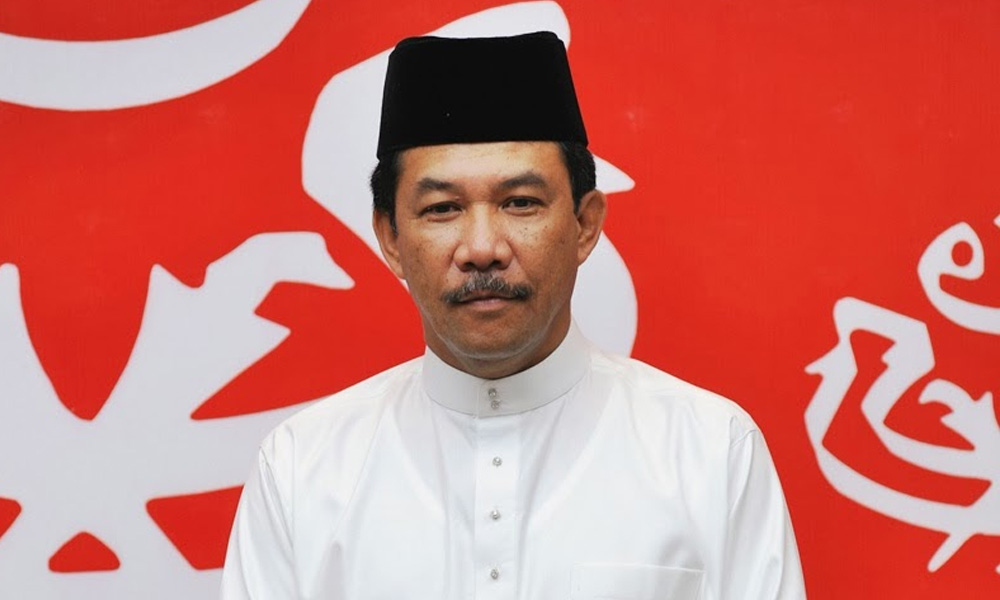
The electorate may have shown a desire for change during May 9 polls, but the Umno members’ decision to choose Ahmad Zahid Hamidi as their new leader signals that the party’s flavour is unlikely to change any time soon.
Several political analysts contacted by Malaysiakini predicted that Umno under Zahid will likely remain combative and focus on communal issues, as opposed to wider policies, in a bid to compete with the more centrist Pakatan Harapan.
Merdeka Center executive director Ibrahim Suffian believed that with Zahid at helm, Umno will likely seek greater cooperation with PAS, as both share the same target market – rural and conservative Malays.
"Umno will be more focused on the Malay electorate and defend that segment from Harapan's encroachment. It also opens up possibilities for Umno and PAS to explore cooperation in the future.
"This also means that Umno will not likely mimic Harapan's more liberal stance when it comes to pursuing multicultural politics – thus drawing the line for contestation along communal lines.
"But Umno will have a tough challenge winning back the voters that turned against it," he told Malaysiakini.
Zahid, 65, had promised that his presidency would be one that would focus on Umno’s core ideologies – protecting agama, bangsa and tanah air (Malay race, Islam and motherland, often abbreviated as ‘Abata’).
In contrast, his two opponents Tengku Razaleigh Hamzah and Khairy Jamaluddin had campaigned on a reformist platform, aimed at addressing graft, antagonism towards public scrutiny and the perennial problem with “money politics.”
At the time of writing, it is clear that of about half of the party’s 191 local divisions had voted for Zahid, while Khairy trailed by a wide margin. Official results are expected later today.
PAS a natural partner
Penang Institute fellow Wong Chin Huat believes that Zahid, whose campaign was also marked by rhetoric on how Umno can form the federal government even before the next general election, showcased his opportunistic side which party members likely resonated with.

"Zahid's victory signals a reluctant opposition which will not change itself, but only hopes to change everything else, including voters' perception.
"Under Zahid, Umno as an opposition will be opportunistic and combative, but not reformist,” said Wong. “Umno would find PAS a natural partner and may team up to jointly attack Harapan over Islam and Malay rights.”
"The cruel reality for Zahid is that Harapan will not implode before Umno's collapse. Thanks to the winner-takes-all (first past the post) system built by Umno, Harapan has a lot of advantages as incumbent to induce crossover from Umno.”
Wong noted that many netizens are already celebrating Zahid’s victory as a boost for Harapan.
One immediate challenge for Zahid, apart from repairing Umno’s image among the Malays, was to forge a meaningful opposition coalition, which would likely be difficult if he pressed on with the communal route.
Seasoned political writer Tang Ah Chai believed that Zahid’s narrow focus will likely antagonise Umno allies MCA and MIC, while discouraging alliances with other parties which advocated multiculturalism.
"If Umno is depending its remaining allies in BN, it will be very hard for MIC and MCA to make a breakthrough in 10 years, thus not quite able to assist Umno," he said.
The May 9 election results had shown that any party which wishes to form the next federal government would require broad-based appeal, as Umno could win only 54 parliamentary seats while their allies in Peninsula Malaysia were almost entirely vanquished.
There were contrasting views among analysts when asked if Umno could now close ranks following the elections.
Rocky road ahead
Adib Zalkapli, an analyst with risk consultancy Vriens & Partners, said the dust has yet to settle and hence too soon to tell if factionalism in Umno will split the party.
"We have to until Zahid announces who he is co-opting into the supreme council," he said.

At the time of writing, it has been confirmed that Mohamad Hasan will be Zahid’s deputywhile two of its three elected vice-presidents are Ismail Sabri Yaakob and Mahdzir Khalid.
Despite losing the presidential race, Adib expects Khairy to continue to play an important role in Umno, by virtue of being one of the most articulate parliamentarians in the opposition bench.
Echoing this, Merdeka Center’s Ibrahim said that if it is mindful of its future, Umno should do its utmost to ensure leaders like Khairy do not jump ship.
"It is expected some of the parliamentarians and other leaders will leave the party and make their way to Bersatu.
“It will be a time of flux. Umno needs a strong leader to keep the party united in the face of external shocks," he said.
Ibrahim also pointed out that Zahid will also be weighed down by other matters, such as the damage likely to be sustained with the ongoing investigations into 1MDB and other scandals.
"The next few years will be tough for Umno." -Mkini


No comments:
Post a Comment
Note: Only a member of this blog may post a comment.